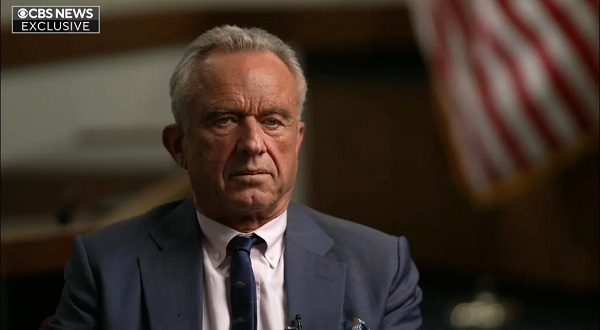News
Mayor Veer outlines the 6 themes of her election platform

From Tara Veer…
Platform 2017
Our community has made significant progress in many areas over the past four years, but we still but we still have serious challenges to address and emerging new opportunities to pursue together. If you choose to renew my mandate to serve you on October 16th, I will continue to work with our community, Council and City staff to effectively strengthen our city in the following themes throughout the term:
Theme #1: Citizen & Community Safety
Red Deerians have identified crime and public safety as their priority concern, so it is imperative that additional strategies are undertaken to ensure crime prevention and enforcement efforts are effective to respond to the safety challenges Red Deer is faced with. If re-elected as Mayor, Tara will continue to actively work to:
Ensure that local community policing priorities are established and enforced through the RCMP’s annual policing plan.
Strengthen the integration between municipal enforcement units and the RCMP to ensure common objectives, efficiency, and quality of service in all delegation of duties.
Prioritize reduction of organized crime, persons crime and property crime in the policing plan.
Identify consistent service standards for non-emergency calls to police.
Reduce the case load per officer and improve officers to population ratio by supporting the addition of new officers.
Reinforce enforcement allocations to foot patrols downtown and in the parks system.
Support the safety continuum from crime prevention through to emergency enforcement.
Increase citizen reporting to help inform crime analysis, intelligence-led policing and patrols.
Establish a strong local and regional regulatory response to the Federal Government’s legalization of marijuana.
Advocate for additional Crown Prosecutors to prevent criminal charges from being “stayed” because of capacity issues at the Red Deer Courthouse.
Hold the Provincial Government accountable for drug needle debris causing general community safety risks.
Theme #2: Fiscal Responsibility & Stronger Economy
Alberta’s recession has affected everyone in our community, and sound financial decision-making of City Council is essential to protect the stability of our local economy. If re-elected as Mayor, Tara will continue to actively work to:
Protect the affordability of living and/or doing business in Red Deer through responsible capital and operating budgets.
Preserve recently established financial strategies such as: the reduced debt ceiling, the capital savings plan, and competitive industrial and commercial tax ratios.
Ensure budget transparency through citizen input and by adopting operating budgets aligned to service standards.
Resolve the current price elasticity challenge to improve citizen access to City services such as recreation and transit.
Ensure City policy is business friendly and enhances our regional & provincial economic competitiveness.
Pending provincial legislative amendments, use new municipal tools to incentivize business attraction in areas of the City needing revitalization.
Position Red Deer for economic development & diversification by actively pursuing grants from other orders of Government, supporting the revitalization of existing community assets, and leveraging upcoming major events to maximize economic spin-off.
Solidify work underway with community partners to establish a strategic means of securing tourism and economic development opportunities for Red Deer.
Theme #3: Citizen-Focused Government & Service Improvements
The City’s daily purpose is to build quality of life for all Red Deerians. Citizen-focused local government & continuous improvement of City services for Red Deerians are strong priorities for Tara. If re-elected as Mayor, Tara will continue to actively work to:
Pursue the next phases of core public service improvements in areas such as (but not limited to): snow and ice control, transit route efficiency, and transportation integration and efficiency.
Proactively communicate to increase accessibility and transparency of local government.
Purposefully engage with citizens to ensure public feedback informs Council decision-making.
Modernize government services to make interactions with City government easier for citizens.
Support strong maintenance of existing City assets as an ongoing priority.
Build upon Council and City staff commitment to find operational efficiencies, innovations and savings that improve service to Red Deerians.
Theme #4: Protect Our Natural & Built Environment
Red Deerians are proud of the fact that we are a city in a park and that we accept responsibility for environmental stewardship. If re-elected as Mayor, Tara will continue to actively work to:
Support environmental modernizations and efficiencies throughout City operations.
Elevate Red Deer’s capacity to respond to extreme weather events by resolving the storm water infrastructure deficit.
Identify key areas for environmental protection before development conflicts occur.
Support the extension of the park system through trail development and winter clearing.
Emphasize food and water security in general and for citizen emergency preparedness for extreme weather events.
Theme #5: Build Community Life
The City’s primary mandate is to provide foundational services to our fellow Red Deerians, but the Mayor is also expected to build partnerships with and for our community in general. If re-elected as Mayor, Tara will continue to actively work to:
Build on our City’s prime geographic position by actively promoting Red Deer to fulfill our potential for business start ups, retention & expansion as well as trade & meeting, culture & heritage, and nature, sports & adventure tourism.
Work with indigenous community to implement municipal aspects of Truth and Reconciliation.
Work with community partners and the Provincial Government to mitigate the emerging risk to Red Deer’s net affordable housing stock and integrate related support services.
Theme #6: Advocate Our Community Needs
As Alberta’s 3rd largest City and region, Red Deer has critical infrastructure imperatives our community needs the Provincial Government to address. If re-elected as Mayor, Tara will continue to actively work to secure:
Expansion for Red Deer Regional Hospital
Polytechnic University status for Red Deer College
Addictions Treatment and Emergency Shelter capacity
Re-purposing of vacated Michener lands and the former Valley Park Manor
Protection of regional ambulance dispatch service and Advanced Life Support ground ambulance service.
International
Germany launches first permanent foreign troop deployment since WW2

 MxM News
MxM News
Quick Hit:
Germany activated a 5,000-strong armored brigade in Lithuania — marking its first permanent foreign military deployment since World War II. The move strengthens NATO’s eastern flank amid Ukraine’s ongoing conflict with Russia.
Key Details:
- The 45th Armored Brigade was formally launched outside Vilnius on Tuesday.
- Germany plans for the brigade to be fully operational by 2027 in Rūdninkai, near the Belarus border.
- The deployment marks a major policy shift for Berlin and a boost for NATO’s deterrence posture.
Diving Deeper:
Germany has officially entered a new era of military engagement, launching its first permanent foreign troop deployment since the end of World War II. The move, announced Tuesday, sees the activation of a 5,000-strong armored brigade in Lithuania as part of a broader NATO strategy to counter the perceived threat from Russia.
The newly formed 45th Armored Brigade was ceremonially inaugurated outside the Lithuanian capital, Vilnius. German Brigadier General Christoph Huber assumed command, overseeing the establishment of a temporary headquarters and unveiling the unit’s crest. “We have a clear mission: to ensure the protection, freedom and security of our Lithuanian allies on NATO’s eastern flank,” Huber said, adding that the unit’s presence also directly contributes to the defense of Germany and NATO as a whole.
The deployment follows a pledge made by Berlin in 2023 — a decision that broke with decades of postwar defense policy rooted in military restraint. German officials had long avoided permanently stationing combat troops abroad. That posture has changed in response to Russia’s ongoing war in Ukraine, which has turned the Baltic region into one of NATO’s most vulnerable frontlines.
Germany’s commitment includes more than just fighting forces. The brigade will also feature key support elements, such as a medical center, communications specialists, and command support units dispersed across multiple Lithuanian locations. Troops will initially operate out of temporary facilities, with a permanent base under construction in Rūdninkai, located roughly 30 kilometers south of Vilnius.
Currently, 150 German soldiers are already on the ground in Lithuania. That figure is expected to rise to 500 by the end of the year as the new brigade scales up operations.
Media
Top Five Huge Stories the Media Buried This Week

NEERA TANDEN: “The military requires accountability. It’s the most accountable organization. You are supposed to be accountable to higher-ups. Politics isn’t supposed to have to do with any of this, and the fact that that’s happening, that they’re just basically saying nothing to do here, is a big problem, I think, for those who believe in accountability.”
@ScottJenningsKY: “I think Republicans aren’t interested in any lectures on accountability in the military after the Biden administration. I mean, the bar for getting rid of a Secretary of Defense is apparently pretty high. You can get 13 people killed and go AWOL and not tell the commander in chief, and that’s not a fireable offense.”
“But these lectures about accountability and national security after letting 10 million people into the country who raped and murdered and committed violent acts and no remorse or accountability.”
NEERA TANDEN: “What are you talking about? They closed the border.”
#4 – Bill Gates says we won’t need humans “for most things.”
During an appearance on The Tonight Show, Jimmy Fallon asked Gates a pretty direct question: “Will we still need humans?”
Gates responded, “Not for most things. We’ll decide … There will be some things that we reserve for ourselves, but in terms of making things and moving things and growing food, over time those will be basically solved problems.”
VIDEO: @TheChiefNerd
REP JORDAN: “Is NPR biased?”
MAHER: “I have never seen any political bias.”
JORDAN: “In the DC area, editorial positions at NPR have 87 registered Democrats and 0 Republicans.”
MAHER: “We do not track the voter registration, but I find that concerning.”
JORDAN: “87-0 and you’re not biased?”
MAHER: “I think that is concerning if those numbers are accurate.”
JORDAN: “October 2020, the NYPost had the Hunter Biden laptop story, and one of those 87 Democrat editors said, ‘We don’t want to waste our readers and listeners’ time on stories that are just pure distractions.’ Was that story a pure distraction?”
Video + Transcript via @Kanekoathegreat
While you’re here, don’t forget to subscribe to this page for more weekly news roundups.
#2 – Utah becomes the first state to officially BAN fluoride in all public drinking water.
For decades, fluoride was accepted as a safe way to prevent tooth decay. Few questioned it.
But last year, in a dramatic legal twist, a federal judge ruled that fluoride may actually lower children’s IQ—and cited evidence that could upend everything we thought we knew.
That ruling sent shockwaves through the public health world.
Judge Edward Chen pointed to scientific studies showing a “high level of certainty” that fluoride exposure “poses a risk” to developing brains.
He ordered the EPA to reexamine its safety standards, warning that the margin for safety may be far too narrow.
At the center of the case: dozens of peer-reviewed studies linking everyday fluoride exposure—even at levels found in U.S. tap water—to reduced intellectual capacity in children.
It wasn’t just one paper. The National Toxicology Program, a branch of the U.S. government, also concluded that higher fluoride levels were “consistently associated” with lower IQ in kids.
They flagged 1.5 mg/L as a risk threshold. Some communities hover right near it.
In response to the growing evidence, Utah passed HB 81, banning all fluoride additives in public water.
The law takes effect May 7. It doesn’t ban fluoride completely. Anyone who wants it can still get it—like any other prescription.
And that’s the point: Utah’s lawmakers say this is about informed consent and personal choice.
This issue is no longer on the fringe. Across the country, cities and towns are quietly rethinking water fluoridation—and some have already pulled out. Utah is the first state to take bold action. It may not be the last.
The conversation surrounding fluoride has shifted from “Is it helpful?” to “Is it safe?” And for the first time in nearly a century, that question is being taken seriously.
VIDEO: @TheChiefNerd
#1 – RFK Jr. Drops Stunning Vaccine Announcement
Kennedy revealed that the CDC is creating a new sub-agency focused entirely on vaccine injuries—a long-overdue shift for patients who’ve spent years searching for answers without any support from the government.
“We’re incorporating an agency within CDC that is going to specialize in vaccine injuries,” Kennedy announced.
“These are priorities for the American people. More and more people are suffering from these injuries, and we are committed to having gold-standard science make sure that we can figure out what the treatments are and that we can deliver the best treatments possible to the American people.”
For years, the vaccine-injured have felt ignored or dismissed, as public health agencies refused to even acknowledge the problem. Now, there’s finally an initiative underway to investigate their injuries and to provide support.
Thanks for reading! This weekly roundup takes time and care to put together—and I do my best to make it your go-to source for the stories that matter most but rarely get the attention they deserve.
If you like my work and want to support me and my family and help keep this page alive, the most powerful thing you can do is sign up for the email list and become a paid subscriber.
-

 2025 Federal Election2 days ago
2025 Federal Election2 days agoResearchers Link China’s Intelligence and Elite Influence Arms to B.C. Government, Liberal Party, and Trudeau-Appointed Senator
-

 Business2 days ago
Business2 days agoTimeline: Panama Canal Politics, Policy, and Tensions
-

 COVID-192 days ago
COVID-192 days agoFauci, top COVID officials have criminal referral requests filed against them in 7 states
-

 2025 Federal Election2 days ago
2025 Federal Election2 days agoPoilievre Announces Plan To Cut Taxes By $100,000 Per Home
-

 Health2 days ago
Health2 days agoRed Deer Hospital Lottery – Previous Supporter Draw Deadline!
-

 Health2 days ago
Health2 days agoRFK Jr. Shuts Down Measles Scare in His First Network Interview as HHS Secretary
-

 Bjorn Lomborg2 days ago
Bjorn Lomborg2 days agoThe stupidity of Net Zero | Bjorn Lomborg on how climate alarmism leads to economic crisis
-

 International2 days ago
International2 days agoTrump White House will ignore reporter emails that include ‘preferred pronouns’ in signature












